Can Cats Eat Frogs? What You Should Know About Frogs and Your Feline Friend
- 2 Apr 2025 16:39
Cats are natural hunters, and many will happily chase and catch small creatures like frogs if given the chance. 🐸 But can cats eat frogs safely? While it might seem like a harmless snack for your cat, there are some important things to consider before allowing your feline to consume a frog. Let’s dive into whether frogs are a safe food option for cats and what potential risks you should be aware of.
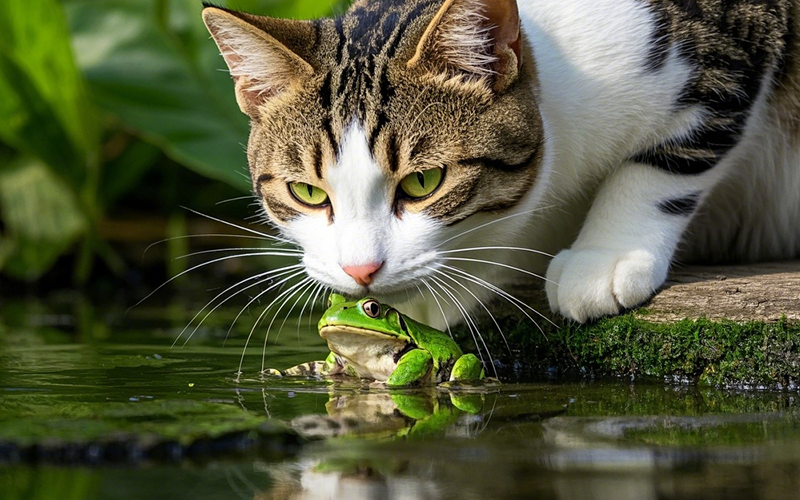
Can Cats Eat Frogs? The Short Answer
In general, it’s not safe for cats to eat frogs, especially if the frog has been exposed to toxins or chemicals. Frogs can carry bacteria, parasites, or toxins that can pose a risk to your cat’s health. While a healthy, wild frog may not cause immediate harm, there are several dangers to be aware of.
The Risks of Eating Frogs
Toxicity: Some species of frogs secrete toxins as a defense mechanism. For example, the Colorado River toad (Bufo alvarius) and some other frogs produce a toxic substance that can cause severe symptoms in cats, such as drooling, vomiting, tremors, seizures, and even death. Cats may try to chew or lick the frog, which could lead to the ingestion of these harmful toxins.
Parasites and Bacteria: Frogs, like many amphibians, can carry parasites and bacteria that could infect your cat. A frog that has been in contact with contaminated water could harbor harmful microorganisms such as Salmonella, which can cause gastrointestinal issues like vomiting, diarrhea, and dehydration.
Choking Hazard: Frogs are small, and cats may attempt to swallow them whole. This can present a choking hazard if the frog gets stuck in their throat or causes a blockage in the digestive tract.
Injury from Frog Legs or Bones: Frogs have sharp legs and bones that could cause injury to your cat if they’re not careful while eating. While cats are skilled at hunting, chewing on a frog’s bones or sharp limbs could lead to oral injuries or discomfort.
Unbalanced Diet: Frogs do not provide the necessary nutrients that cats need in their diet. While frogs are a natural source of protein, they lack the essential vitamins and amino acids that are required for a cat’s overall health. A cat that regularly eats frogs instead of nutritionally balanced food may suffer from malnutrition.
What Happens if My Cat Eats a Frog?
If your cat catches and eats a frog, here’s what you should do:
Observe for Symptoms: Keep an eye on your cat for any signs of illness, such as vomiting, diarrhea, drooling, tremors, lethargy, or changes in behavior. If your cat shows any of these symptoms, it’s essential to seek veterinary attention immediately.
Contact a Pet Health Professional: If you suspect that your cat has eaten a toxic frog or is showing signs of poisoning, contact a pet health professional right away. They will be able to assess the situation and provide treatment if necessary.
Hydration: If your cat has eaten a frog and is not showing any immediate signs of distress, make sure they have access to fresh water. Dehydration can be a concern if your cat experiences any digestive upset from eating the frog.
How to Prevent Your Cat from Eating Frogs
If you live in an area where frogs are common, it’s important to take precautions to prevent your cat from eating them. Here are some tips:
Supervise Outdoor Time: If your cat enjoys spending time outdoors, supervise their activities to prevent them from catching and eating frogs or other potentially harmful creatures.
Frog-Proof Your Garden: Frogs are more likely to be found in damp or marshy areas. If you have a garden or yard, try to keep it dry and free of standing water where frogs may be present.
Provide Proper Entertainment: Cats are natural hunters, and if they don’t have enough stimulation or toys, they may turn to real creatures like frogs to fulfill their hunting instincts. Providing your cat with plenty of toys, playtime, and enrichment can help reduce their desire to catch frogs.
What to Feed Your Cat Instead
Instead of feeding your cat frogs, make sure they are eating a balanced, nutritionally complete diet. High-quality commercial cat food is designed to meet all of your cat’s dietary needs. Some good alternatives to frogs include:
High-quality canned or dry cat food: These foods are specifically formulated to provide all the essential nutrients your cat needs for a healthy life.
Cooked lean meats: Cats can enjoy small amounts of cooked chicken, turkey, or beef, which provide essential protein and nutrients.
Cat-safe treats: There are many treats available that are formulated specifically for cats. These can be a safer and more balanced alternative to frogs or other small animals.
The Role of PettureX in Pet Health
If you’re ever uncertain about what foods or creatures are safe for your cat, PettureX is an excellent resource. 🐾 PettureX offers 24-hour online consultations, where you can ask questions and receive advice on your cat’s health and diet. It also features pet image recognition that can help you identify plants or animals your cat might come into contact with, ensuring their safety.
Conclusion
So, can cats eat frogs? While a cat may catch and eat a frog, it’s not safe to allow them to do so. Frogs can be toxic, carry parasites, and cause digestive issues. To keep your cat healthy, it’s best to discourage frog-eating and instead offer them safe, nutritionally balanced food and treats.
If you’re concerned about your cat’s health or have any questions about what they can safely eat, PettureX is here to provide expert guidance and help you keep your feline friend safe and happy! 🐱💚
By ensuring your cat avoids risky foods like frogs and sticks to their proper diet, you can help them live a long, healthy, and happy life!
Related
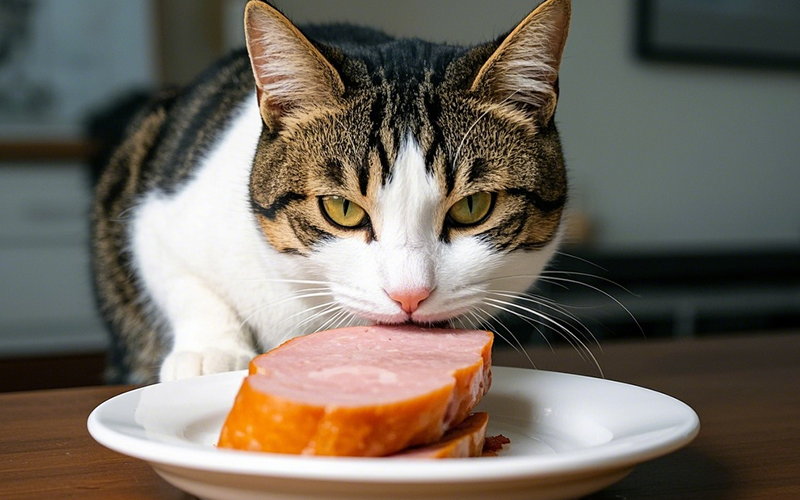
Can Cats Eat Deli Ham? A Meaty Treat That Comes with Caution
- 2 May 2025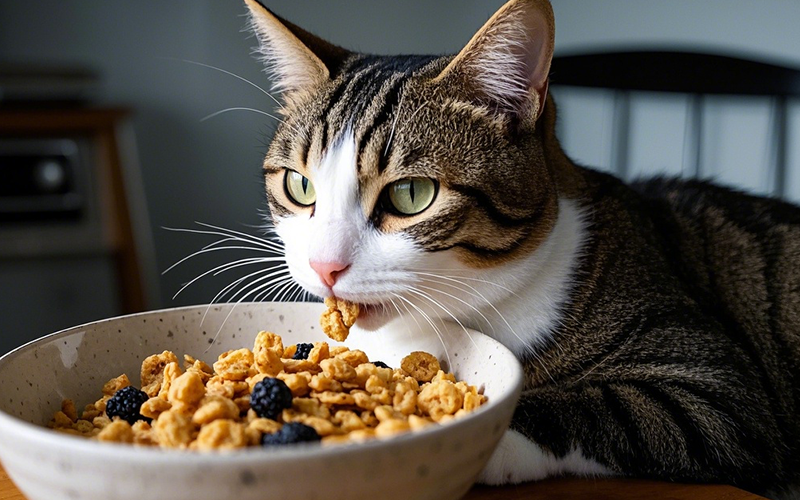
Can Cats Eat Granola? Is This Crunchy Snack Safe for Your Feline Friend?
- 2 Apr 2025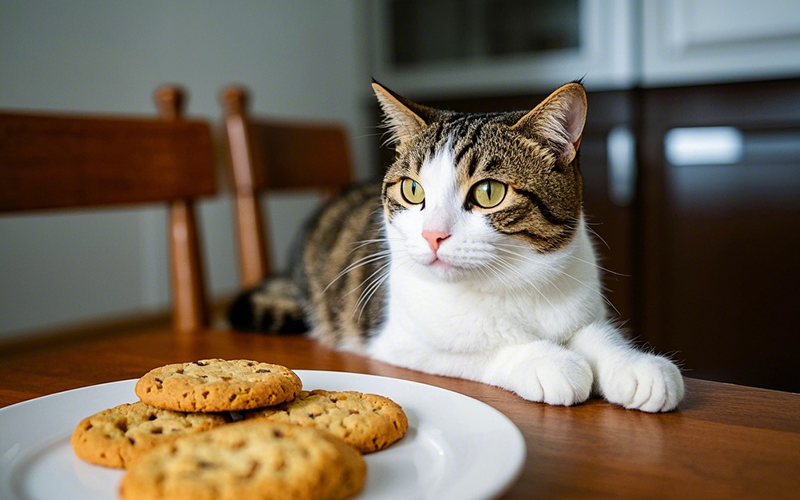
Can Cats Eat Graham Crackers? A Sweet Snack or a Risky Treat for Your Feline Friend?
- 2 Apr 2025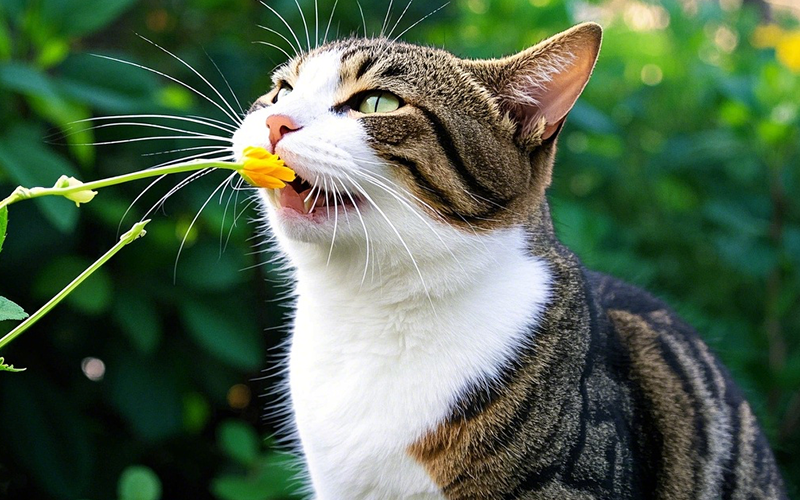
Can Cats Eat Flowers? What You Should Know About Floral Treats for Your Feline Friend
- 2 Apr 2025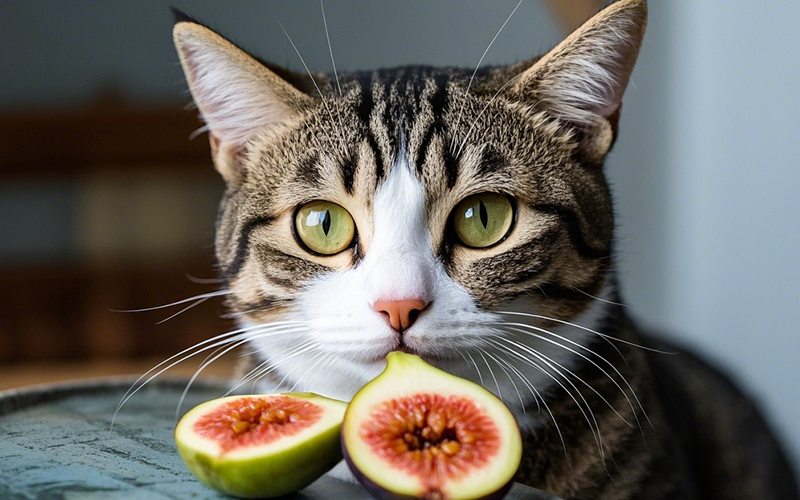
Can Cats Eat Figs? What You Need to Know Before Sharing This Fruit
- 2 Apr 2025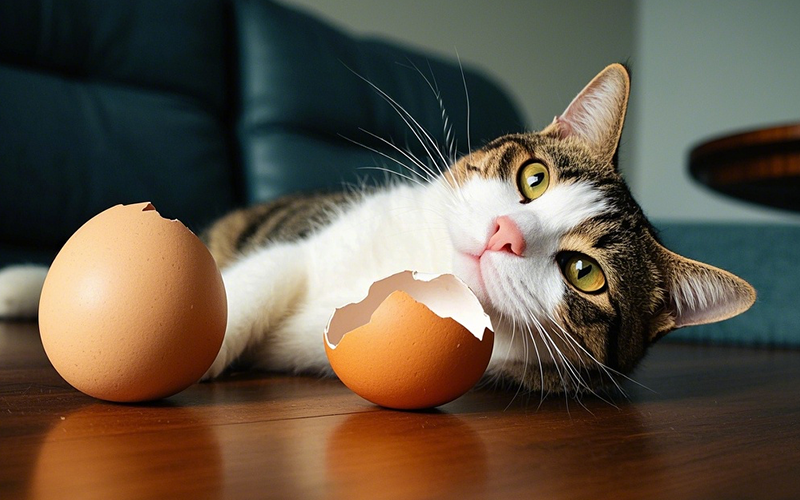
Can Cats Eat Egg Shells? The Benefits and Risks of This Crunchy Treat
- 2 Apr 2025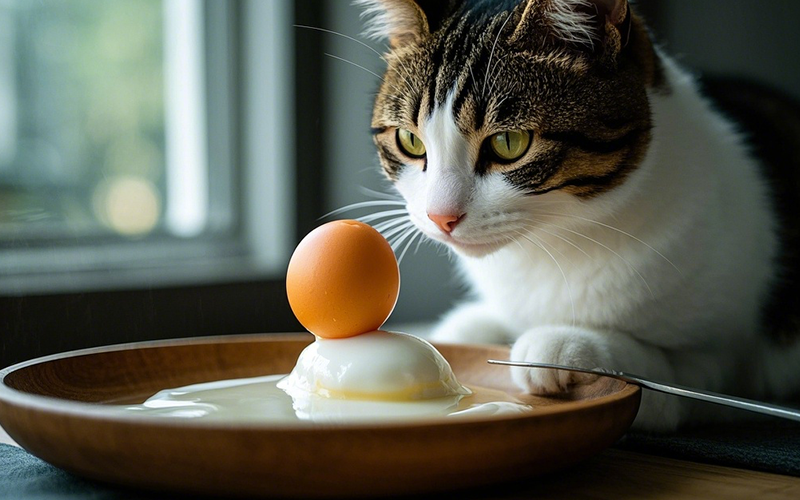
Can Cats Eat Egg Whites? The Facts You Need to Know
- 2 Apr 2025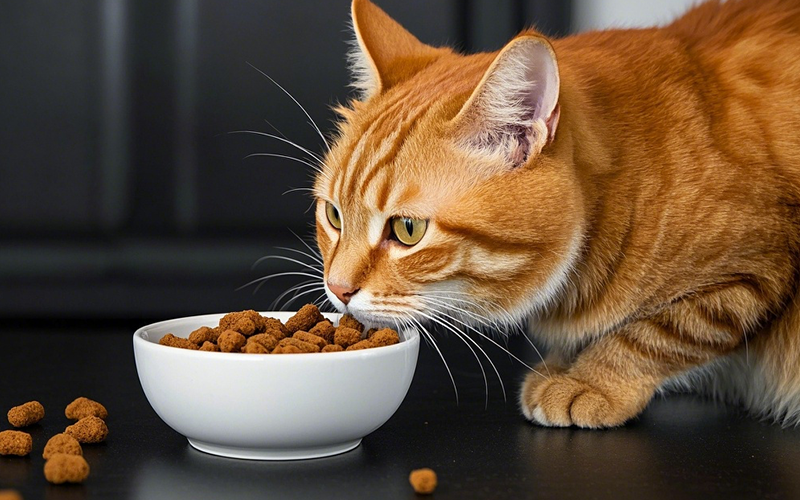
Can Cats Eat Dry Dog Food? Why It’s Not a Good Idea
- 2 Apr 2025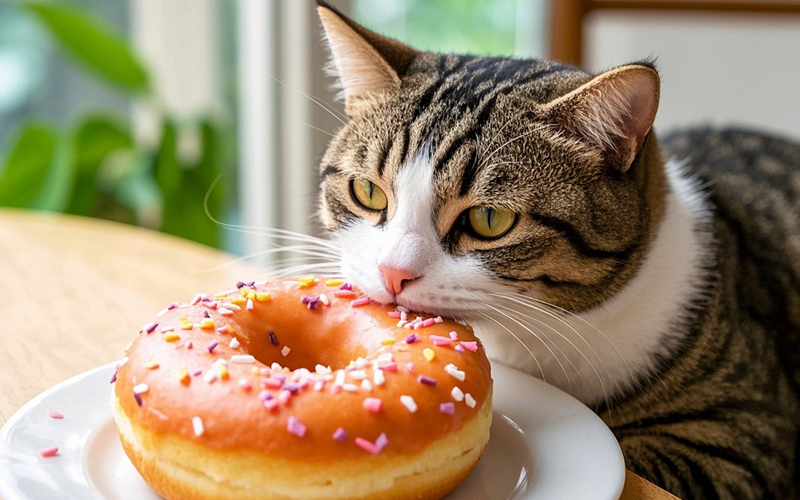
Can Cats Eat Donuts? A Sweet Treat Best Avoided
- 2 Apr 2025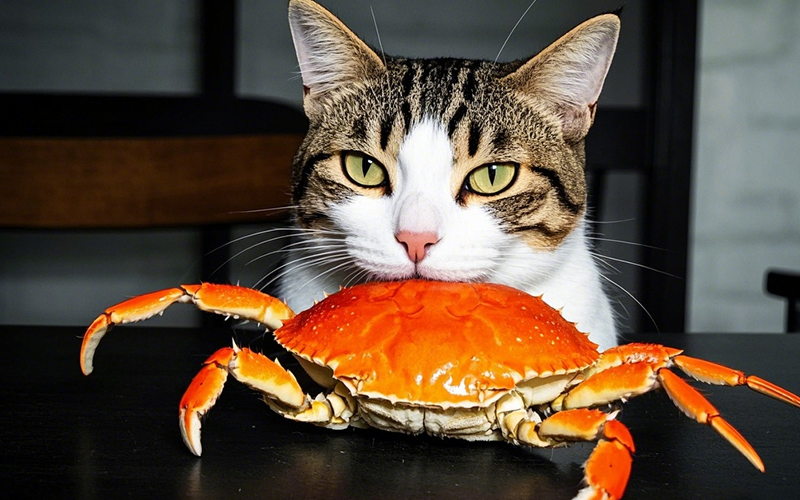
Can Cats Eat Crab Meat? A Tasty Treat with Some Caution
- 1 Apr 2025
